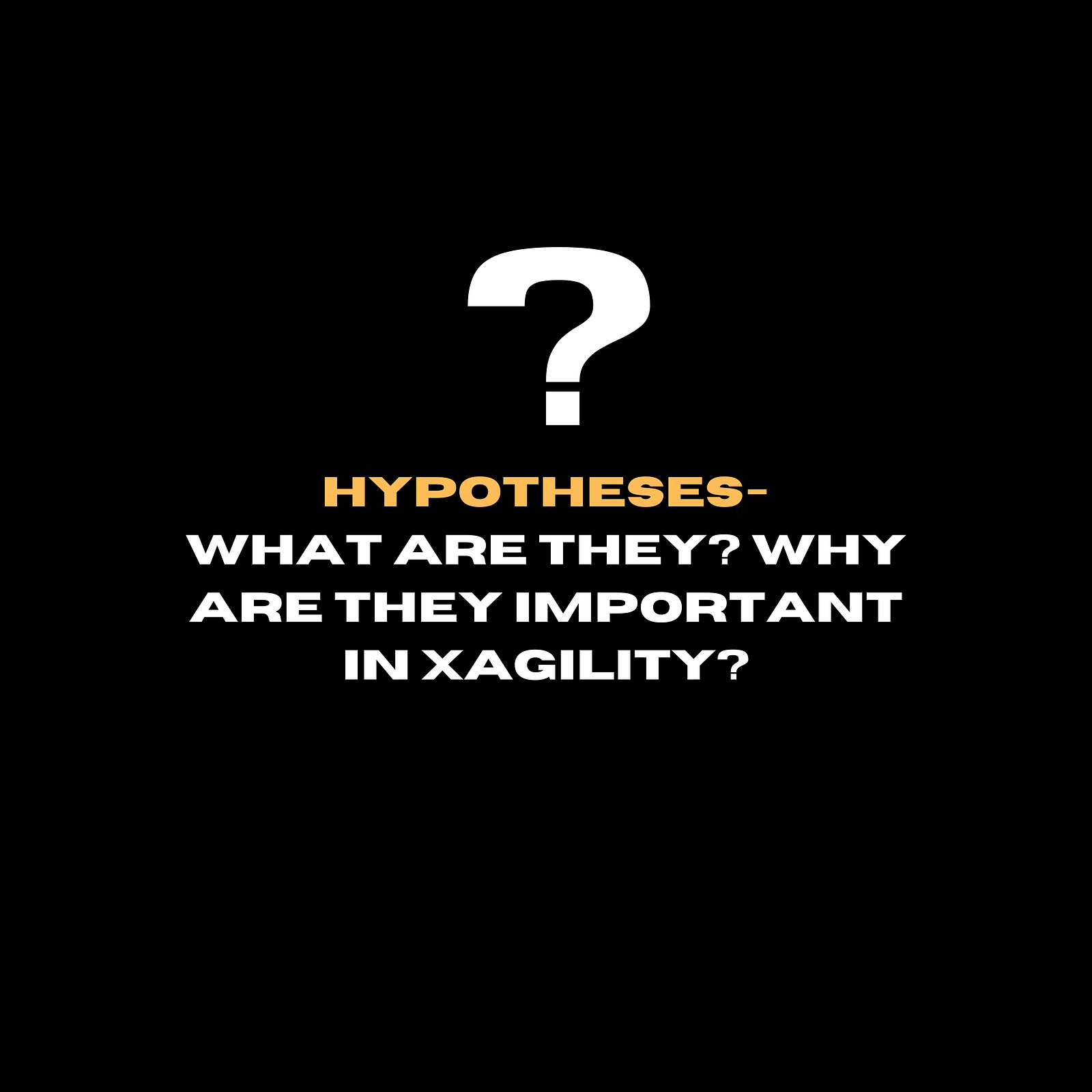
I talk a lot about hypotheses, but what is a hypothesis?
What is a hypothesis?
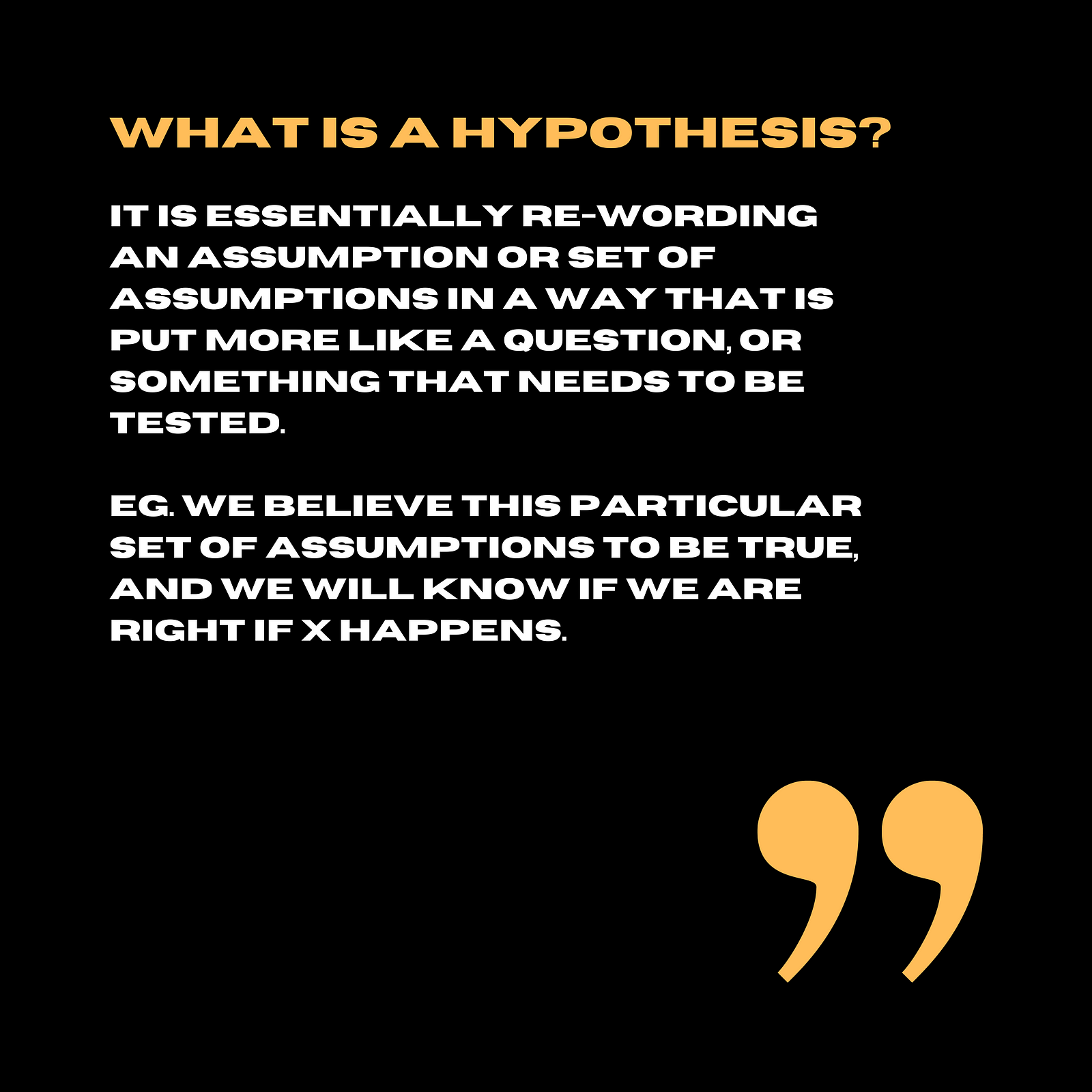
It is essentially re-wording an assumption or set of assumptions in a way that is put more like a question, or something that needs to be tested, eg. we believe this particular set of assumptions to be true, and we will know if we are right if X happens.
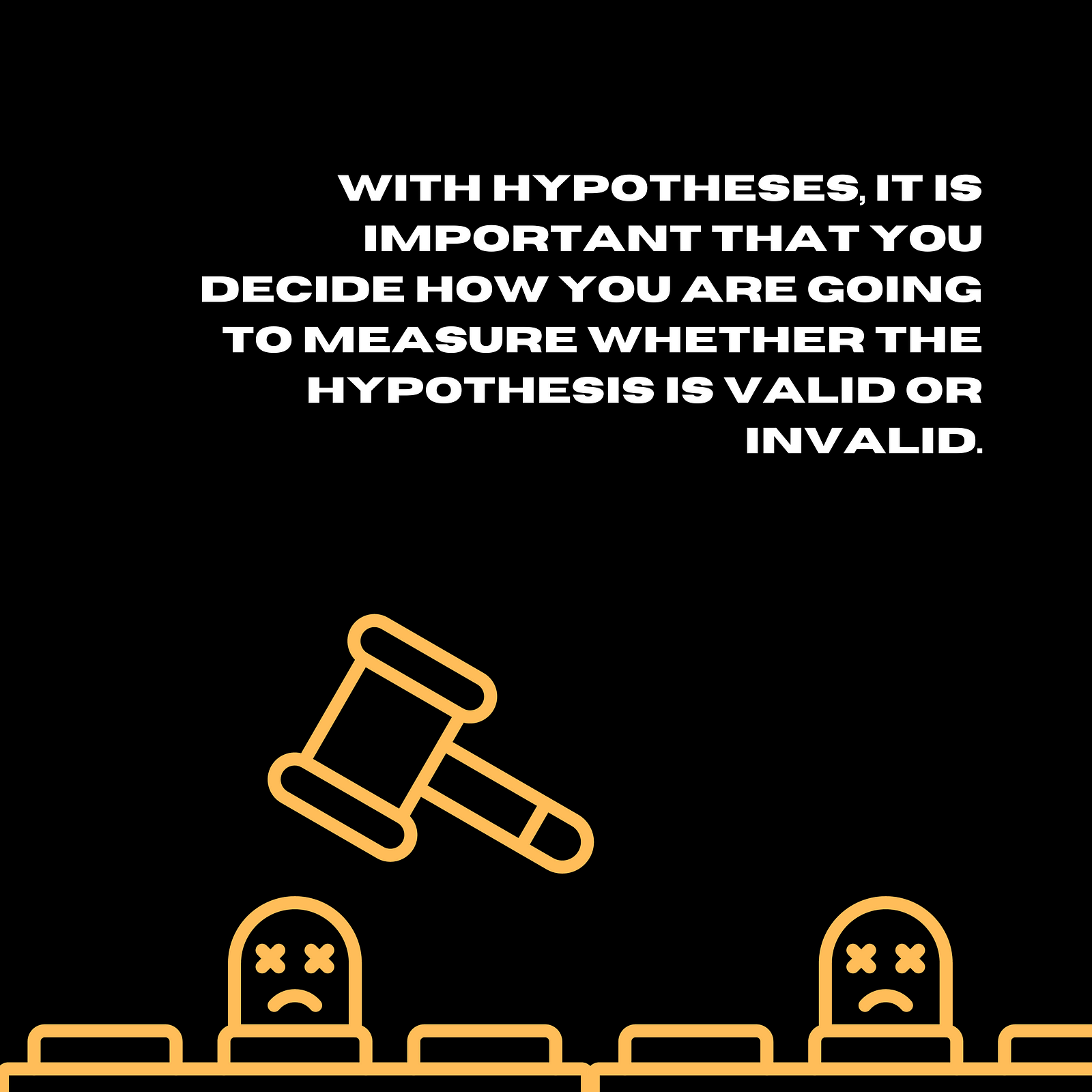
With hypotheses, it is important that you decide how you are going to measure whether the hypothesis is valid or invalid.
We do not want to be just trying things. That is kind of like what we call “whack-a-mole” where you are whacking the moles in the funfair and just reacting. In that context, you are not thinking systemically.
What should you consider when you have a hypothesis?
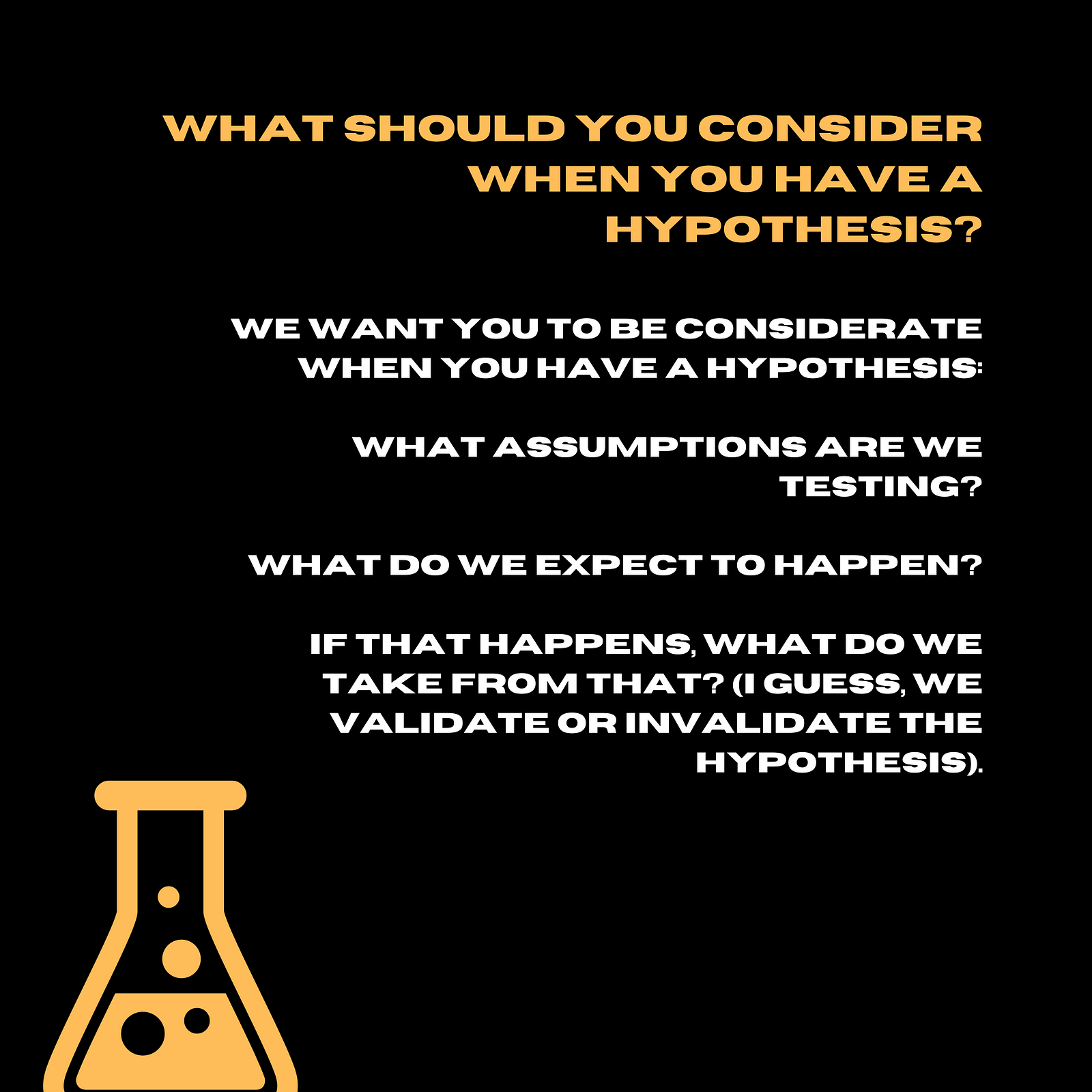
We want you to be considerate when you have a hypothesis:
- what assumptions are we testing?
- what do we expect to happen?
- If that happens, what do we take from that? (I guess, we validate or invalidate the hypothesis).
The importance of building evidence
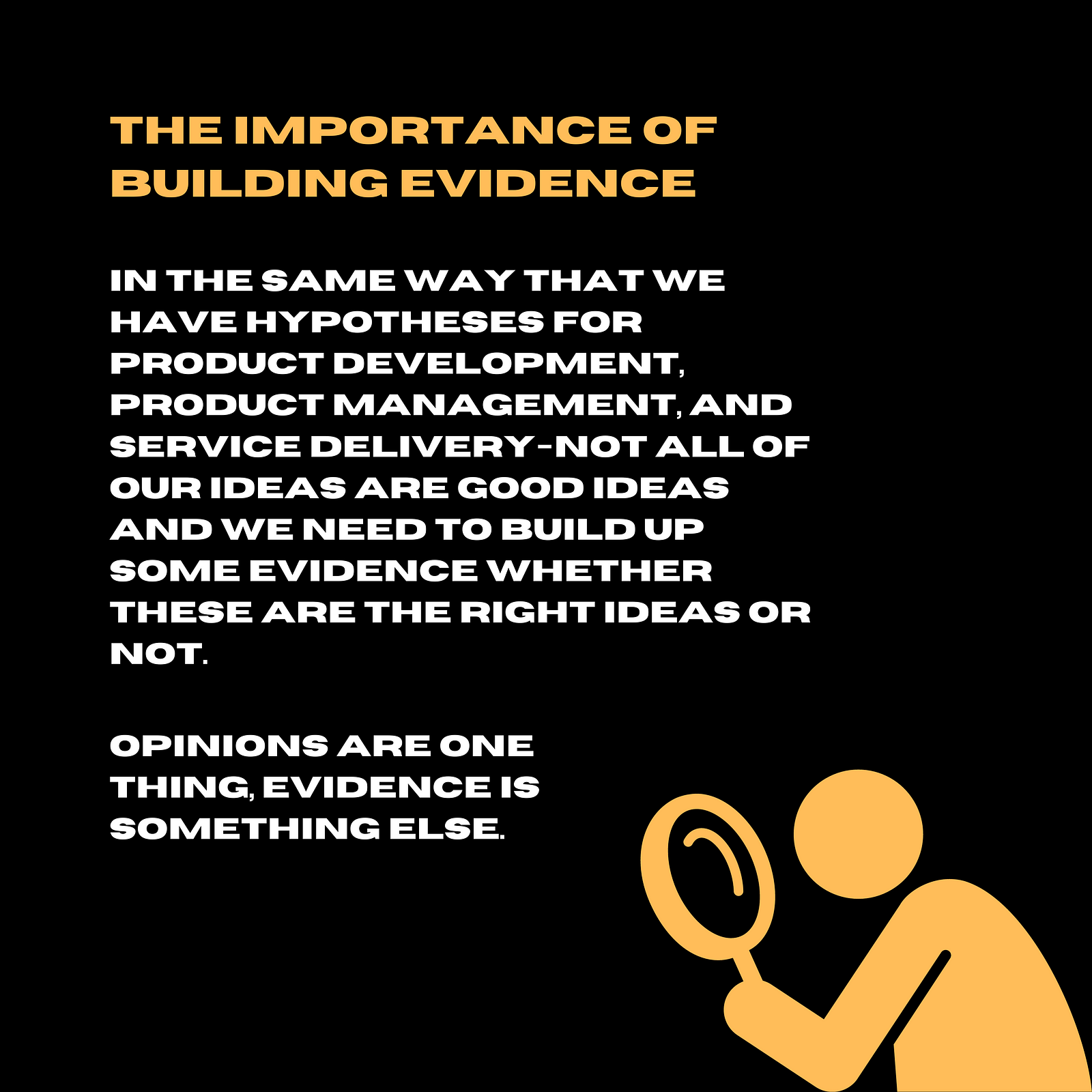
So in the same way that we have hypotheses for product development, product management, and service delivery — not all of our ideas are good ideas and we need to build up some evidence whether these are the right ideas or not.
This body of knowledge that I am sharing with you is essentially a set of hypotheses. With hypotheses, I need to see if when you replace one behavior with another, will it actually make a difference? It would be lovely if we could have pure cause and effect like that, but in complexity, it’s not so simple. It would be difficult to do randomized controlled trials with something like this.
I have consulted with well over 40 people in Agility and Executive Leadership and there is some form of alignment that these might be good hypotheses. I would really like your support in gathering evidence on whether some of these hypotheses are valid or invalid so we can improve the overall series of behavioural replacements.
I am not telling you that this is a recipe. Some of these things might work, some of these things might not work. On balance, we are saying try these things. We are saying avoid some of these other things. What I will be doing later in this series is I will be re-wording each of the behavioral replacements as a hypothesis. So, hopefully, by seeing each of these behavioral replacements as hypotheses, you will understand that this is not deterministic. We do not know for certain what will happen. We have strong feelings and opinions, but just like in Product Development and Product Management, opinions are one thing, evidence is something else.
Thank you.
